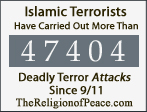Bangladesh asked to uphold rights of minority religious groups and foster a climate of tolerance
Communal attacks on religious minorities in Bangladesh are on the rise, the US State Department said in a recent report, which emphasized on the importance of their protection.
The "2020 Report on International Religious Freedom" released on May 12 lists a number of incidents of murder, intimidation, mass attack and violence perpetrated against the religious minorities in Bangladesh last year.
It said that the government often remains ineffective in preventing forced evictions and land seizures stemming from land disputes, as alleged by religious groups.
The State Department submits status reports of religious freedom in every country to the Congress on International Religious Freedom in accordance with the International Religious Freedom Act of 1998.
The report covers government policies violating religious belief and practices of groups, religious denominations and individuals, and the US policies to promote religious freedom around the world.
The 2020 report also mentions the shortage of religious minority teachers in Bangladesh, for which the religious minority students sometimes were unable to enroll in mandatory religious education religion classes.
Bangladesh constitution designates Islam as the state religion, the report says before adding the government continued to provide guidance to imams on the content of sermons in a bid to prevent militancy and to monitor mosques for “provocative” messaging.
The government continued to place law enforcers at religious sites, festivals, and events considered potential targets for violence.
In January last year, the Election Commission rescheduled local elections after students and faith groups protested scheduling the elections during a Hindu festival.
The report highlights the government allocation for development through various autonomous religious bodies. In the budget for 2020-21 fiscal year, the Islamic Foundation got Tk8.12 billion, the Hindu Welfare Trust received Tk1.4 billion, and the Buddhist Welfare Trust received Tk46.8 million.
While the Christian Welfare Trust did not receive any development funding from the 2020-2021 budget, it received Tk70 lakh to run its office.
Ahmadiyyas still vulnerable
The US report mentions an incident that took place in Brahmanbaria in July last year when the local residents exhumed the body of an Ahmadi Muslim infant buried in a government graveyard and later dumped the body at the side of the road. The protesters considered her family to be “infidels”; the body was later buried in a government cemetery.
Human rights groups termed the incident a “crude example of violence against religious minorities and abuse of human rights.”
There are many Ahmadiyyas living in different parts of the country, whom the Islamist groups do not recognize as Muslims and often stage demonstrations to banish them. One of them is Hefazat-e-Islam – a Qawmi madrasa-based organization formed with leaders of Islamist parties at the helm.
Hefazat has been pressing the government since 2013 to declare the Ahmadiyyas non-Muslims, but the government has refused saying it would be unconstitutional.
Hefazat’s demand is akin to the demands of radical outfits in Pakistan including Jamaat-e-Islami. In 1953, the Jamaat led by its founder Abul A’ala Maududi waged a movement to declare Ahmadiyyas outcasts from Islam that resulted in riots in Lahore and led to the deaths of hundreds of Ahmadiyyas.
Attacks on Sufi, Baul followers
In late July last year, according to the US report, a Sufi follower named Soheil was stabbed to death in Gazipur. The perpetrators noticed Soheil outside a Sufi shrine, followed him, tied his arms and legs, then stabbed him in the stomach and disemboweled him.
Banned militant group, Jama'atul Mujahideen Bangladesh (JMB) claimed responsibility and published an online video of the killing. The following morning, the killers tied a brick to Soheil’s body and dumped it into the Shitalakhya River.
Counterterror police uncovered the incident after interrogating suspected JMB militants. According to Sufi leadership, Soheil was known for selling religious objects and conducting spiritual healings, and had the nickname “Maizbhandar Soheil”, potentially making him a target.
Baul folk singer Shariat Sarker was arrested in Tangail in January last year for allegedly making derogatory comments against Islam and “hurting religious sentiments” following a protest by more than 1,000 individuals and a complaint to police by a Muslim cleric.
In February, a lawyer accused another Baul folk singer, Rita Dewan, of making derogatory comments against Allah during a musical competition. After a video recording of the song went viral, she apologized, but criminal charges were brought against her the same month. Following a police investigation, a court issued a warrant for her arrest in December.
The US report also mentions the trial proceedings in the cases involving the murders of foreigners in the Holey Artisan attack in 2016, bloggers including Avijit Roy and Hindu priest Joggeshwar Roy in Panchagarh at the hands of militant groups linked to Islamic State and al-Qaeda.
On March 12 last year, a Speedy Trial Tribunal convicted and sentenced to death four members of JMB for their involvement in the killing of Jogeshwar Roy, chief priest at Sri Swanta Gouria Monastery, who was killed while organizing prayers at the temple.
Attack on Hindus
There was no progress in the court case regarding a 2016 attack on Hindu individuals, homes, and temples in Brahmanbaria, the US report states, adding that the victims expressed frustration to media over the sluggish investigation into the incident.
The Bangladesh Hindu Buddhist Christian Unity Council (BHBCUC) also alleged that communal violence against the minorities continued throughout the year, including during the Covid-19 pandemic.
In November last year, a Muslim crowd burned, looted, and vandalized Hindu family homes in Comilla. The crowd was incited by rumors that local Hindu residents supported the publication in the French magazine Charlie Hebdo of caricatures of the Prophet Muhammad.
In July, individuals destroyed and forcefully removed the bamboo fence bordering a 200-year-old Hindu temple and privately-owned land in Pirojpur.
The incident took place in an attempt to take possession of the land. No arrests or charges were made in connection with this incident, according to the US report.
The report also highlights the arrest of Biplob Chandra Baidya, a Hindu man, who remained imprisoned since October 2019 for anti-Islam messages posted to his Facebook account, which he stated was hacked.
Rioters vandalized homes and religious temples following the postings. A violent clash between a mob of protesters and police in Burhanuddin upazila, Bhola on October 20 resulted in the deaths of four people.
Regarding the vested property cases, the US report states that, the process was sluggish. Media reports, rights activists, and the BHBCUC attributed the slow return of seized land to judicial inefficiency and general government indifference.
According to Freedom House’s 2020 report, mentioned in the US report, religious minorities remained underrepresented in politics and state agencies.
Buddhists in Chittagong Hill Tracts
The report states that a portion of the ethnic minorities living in the Chittagong Hill Tracts are Buddhists and they speak tribal languages, making it difficult to access government registrations and services, and further disenfranchising these groups.
Last year, NGOs continued to report tensions in the CHT between the predominantly Muslim Bengali settlers and members of the small ethnic groups, primarily Buddhist, Hindu, and Christian, largely over land ownership.
In October last year, the Mro tribe, a majority Buddhist group, protested the development of a tourist hotel on Chimbuk Hill in Bandabarban, stating the project would displace tens of thousands of Mro from their ancestral land.
Minority religious communities, who are also sometimes members of ethnic minority groups, continued to report property and land ownership disputes and forced evictions, including by the government, which remained unresolved at year’s end, according to the report.
It quotes human rights activists to say that it is often difficult to determine whether these disputes and evictions were a result of deliberate government discrimination against religious minorities or of government inefficiency.
The government continued construction projects on land traditionally owned by the ethnic communities in Moulvibazar and Modhupur forest areas, says the report.
Rohingyas of Cox’s Bazar
The report says that the US government provided nearly $349 million in assistance for programs to assist the Rohingya refugees and the host communities in Bangladesh, emphasizing on US support for protecting vulnerable religious minority groups.
Human Rights Watch estimates that approximately 1,500 Rohingyas in the refugee settlements are Christians while approximately 450 are Hindus.
According to the Office of the UN High Commissioner for Refugees, more than one million Rohingya refugees fled Myanmar in successive waves since the early 1990s. Of them, approximately 740,000 Rohingya took refuge in August 2017.
Status of the Christians
The US report states quoting media reports that in January last year, unidentified persons attacked several Rohingya Christian families at the Kutupalong Maga refugee camp in Cox’s Bazaar reportedly over intolerance against the Christian faith, forcing the authorities to relocate 25 families to another camp.
The Christian Welfare Trust and other human rights NGOs continued to report harassment, communal threats of physical violence, and social isolation for Christians who converted to Christianity from Hinduism and Islam.
In spite of constitutional guarantees protecting an individual’s right to change faiths, according to the Christian Welfare Trust, when someone’s professed faith deviated from the faith tradition commonly linked with his or her surname, particularly if the professed faith was Christianity, harassment, threats, and social isolation could ensue.
The Garo community in Mymensingh are also predominantly Christian, as are some of the Santal in Gaibandha.
Source: Dhaka Tribune


















0 Comments